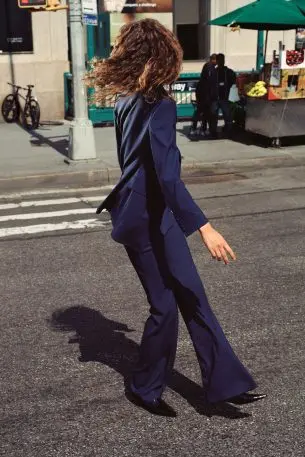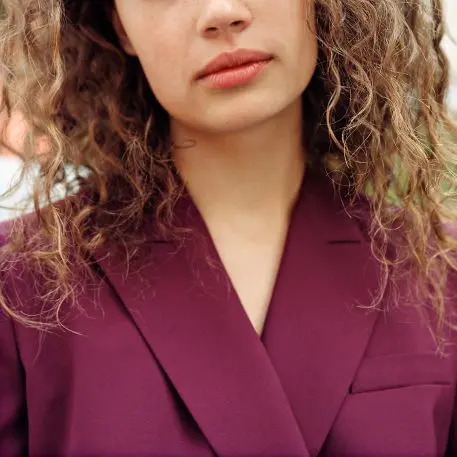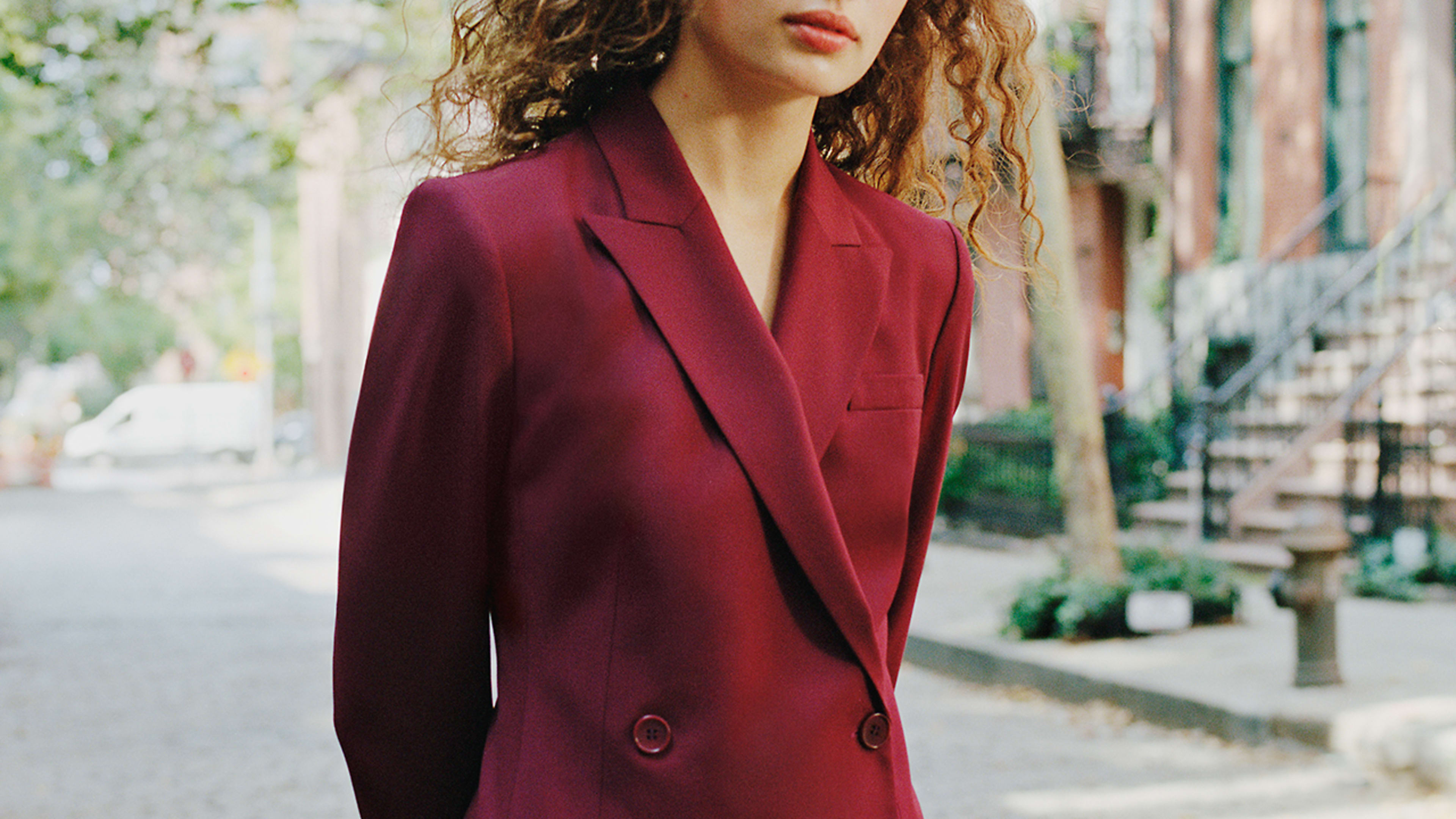“If we don’t worry about the fate of our universe, I won’t have people to clothe,” says Andrew Rosen, founder and CEO of Theory, who launched the iconic brand exactly two decades ago with the goal of creating better-fitting workwear by incorporating Lycra into every garment.
It’s an idea that was very high-tech for its time. Rosen designed collections of sleek, minimalistic clothing that was very comfortable and always looked perfectly tailored, a winning concept that transformed Theory into a global billion-dollar powerhouse. As the brand was nearing its 20th anniversary, people kept coming to Rosen to ask whether he wanted to have a big party, but the forward-looking founder wasn’t interested in looking backward.
“I didn’t want to celebrate our 20 years,” Rosen says. “I wanted to start over and think about our next 20 years.”
Which is how Rosen started thinking about the fate of the universe. Over the last few years, we’ve seen a growing awareness about how damaging fashion is to our environment. By some estimates, it is the second most polluting industry in the world, after oil. To prepare for the future, Rosen has embarked on an ambitious strategy to develop the Earth’s most Earth-friendly workwear.
Today, Theory is launching Good Wool, its most sustainable collection to date. To create it, Theory’s head of product development, Wendy Waugh, went deep into the supply chain to find the most environmentally conscious farms, mills, and sewing factories in the world. Every aspect of these garments, from the traceable wool, to the biodegradable lining, to the recycled buttons is made in the most sustainable way possible. The clothes are priced on par with everything else Theory makes: Pants are $275, dresses are $325, and blazers are $395.

Theory decided to focus on wool first because it is a staple of workwear and is heavily used in the brand’s garments. It’s also something that consumers don’t often think about. While there is now more awareness about the polluting effects of cotton and denim, most people don’t know much about wool besides the fact that it comes from sheep. (And probably Australian sheep, since 90% of the world’s wool supply comes from Down Under.)
In fact, many clothing manufacturers aren’t even aware of where their wool comes from. Farms around the world sell their wool to middlemen, who combine it and then auction it in global wool markets. Spinners buy the wool to turn it into yarn, then mills buy the yarn to make fabric. Fashion labels then go to annual fabric fairs, where mills display their most recent fabrics. They then buy the materials they need for their next collection, which are shipped to factories, where they are cut and sewn into clothes.
But sheep farming, if not done in a responsible way, can be catastrophic for the environment. Breeding sheep, and cultivating food for them, consumes a lot of natural resources. The animals themselves produce methane, a greenhouse gas. And over-farming can result in soil erosion and degradation. Then there’s the whole issue of animal welfare: Large commercial farms have been known to violently cut off parts of the sheep’s body that attract flies and pests, and maim the animals in the sheering process.
FindingThe Right Suppliers
To ensure that Theory was sourcing responsibly, Waugh went out to investigate how farms operated. After to talking to a lot of people, she eventually found a family-owned farm in Beaufront, Tasmania, that had very high standards when it came to keeping the land healthy and the sheep happy. Waugh had several long conversations with the farm’s current owner, Julian von Vibra, who is a seventh-generation farmer.
“He cares about preserving the land, because it’s his home,” Waugh says. “He also has a program where he teaches shearers how to shear the sheep so it doesn’t harm them.”

Instead of selling the wool through an auction house, the Australian farmer works directly with a mill in Biella, Italy, that has been owned by the same family for three generations. Theory, for its part, works with this mill to create a fabric that combines the Tasmanian wool with elastane, to create the stretchy material that the brand is known for. But Waugh was also drawn to this mill because it is working to make its own business as green as possible. They use solar powered energy to make the fabric and they have a treatment plant that purifies the water, which is important since dyes are used in the manufacturing process.
“They’ve been focused on sustainability for quite a while,” she says.
Importantly, Waugh explains that all the suppliers are equally committed to creating high-quality wool. The final garments are made from lightweight, stretchy, breathable wool that can be worn year-round. They come in bright colors, like pinks and purples, in addition to the more muted shades, showcasing how well the wool holds color. “This means that our suits are long-lasting, which makes them inherently sustainable,” she says. “It is something that a man or woman can wear for years, which means reducing unnecessary consumption.”
Theory is releasing the Good Wool collection around the world today, but for Rosen, this is just the first step in a larger project of re-making the brand’s entire supply chain to be as sustainable as possible. That would be much easier for, say, a new startup than it is for Theory–a billion-dollar brand with a complex global supply chain. “The truth is, if we were starting from scratch, it would be easier to do everything this way,” Rosen says.
But on the flip side, a brand like Theory has far more impact. As the brand launches the collection, it is being transparent with the customer about exactly how the products are made, so this is something they eventually come to expect from all the brands they buy from. “We’re bringing something to the customer that they can be assured of and pleased about buying,” Waugh says. “It’s really good wool.”
Recognize your brand’s excellence by applying to this year’s Brands That Matter Awards before the early-rate deadline, May 3.
